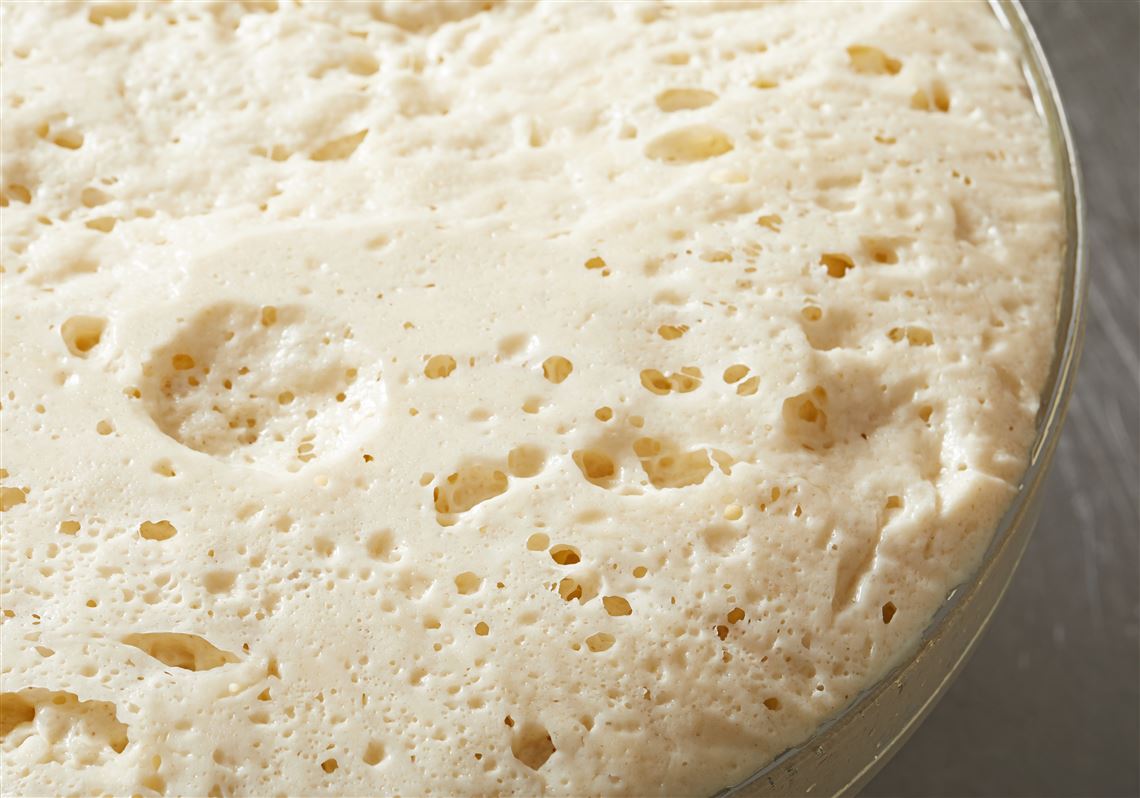Your kitchen may contain “a pantry full of potential pet poisons,” says the catchy news release from the toxicology experts at Pet Poison Helpline.
Coffee beans, coffee grounds, teabags, alcohol and salt can sicken pets, along with an item I’ve never seen before on a bad-for-pets list: yeast.
“Pets consuming human foods make up more than 20% of poison-related calls,” according to a news release from Veterinarians.org that includes yeast and raw dough on its poison list.
Lilies, mushrooms, aspirin, ibuprofen and rat poison are in the news release from Embrace Pet Insurance, which pays the veterinarian bills of pets who eat the wrong things.
Chocolate, grapes, raisins and Xylitol are on everybody’s list of foods that can sicken or kill pets. Many pet owners know about those, although Xylitol sweetener found in sugar-free gum and other food is sometimes labeled as “birch sugar.”
Vomiting, diarrhea, lethargy, seizures and agitation are some of the common symptoms of poisoning.
Unbeknownst to most people, March 20-26 was National Poison Prevention Week, which is why so many companies and organizations have been sending out advisories. I get these lists every year, and yeast is a new one for me.
Blaze, the Boston terrier who shares my house, is in no danger because I don’t bake and have never purchased yeast. But bakers, beware.
“When mixed into a dough, yeast organisms are busy making alcohol and lots of gas through fermentation,” says Pet Poison Hotline. “The dough can expand in the stomach, blocking the ability for the dough and gas to pass through. The alcohol produced may result in alcohol poisoning.”
Veterinarians.org says “if ingested, raw dough can expand inside an animal’s digestive tract and cause severe bloating, making it difficult for an animal to breathe.”
As for alcoholic drinks, “as little as just a few ounces of alcohol can result in a pet’s death in just 12-24 hours,” the vet site says, adding that lethargy and seizures may be symptoms.
Now back to coffee beans and grounds. Both contain caffeine, a stimulant that can cause tremors and a racing heart, according to Pet Poison Helpline. Tea also contains caffeine, and if a pet swallows an intact teabag there’s the added danger of the bag, string and tag causing intestinal damage or blockage.
“Pets should never be given salt,” according to the hotline. “Too much salt can cause vomiting, tremors and seizures.”
Ingesting macadamia nuts can cause dogs to have difficulty walking and can cause joint pain and pancreatitis.
“Ingesting just a few raisins can result in kidney injury for your furry pet,” say the experts at Pet Poison Helpline. Without quick veterinary intervention, pets can die from kidney failure.
Even a regular human dose of aspirin or ibuprofen can kill a pet. The over-the-counter drugs damage the lining of the gastrointestinal tract and cause bleeding.
“Rat poison seems obvious,” says the Embrace release, but most people don’t think about it. Contact veterinarians and tell them exactly what kind of rat poison your pet has eaten. Some rat poisons are colorful pellets that resemble jelly beans, which also makes them attractive to small children.
Years ago when I lived in the city, I returned from work to find a woman in a black uniform inside my fenced yard. She said she was from Pittsburgh Environmental Services and was putting out rat poison. I insisted she remove the packets and put them outside my yard even though she said the rat poison would not harm pets. I did not want my 18-pound pug and 7-pound Siamese cat to be exposed. If it can kill a rat, it can kill a small pet.
I’ve had complaints from readers who said professional exterminators told them the rat poison they use would not harm their pets. I called the Pittsburgh Poison Center and was told that was a false claim. Small pets are at higher risk for poisoning, and the risk increases with the amount of food eaten.
Lilies are lethal to cats, so don’t send the pretty flowers to homes where cats live.
“All parts of lilies, including the water they sit in, are poisonous to cats,” according to Embrace. “Only a few bites can cause their kidneys to shut down. Common symptoms include vomiting, drinking and excessive urination.”
Even tiny amounts of lily pollen in the air can have dire consequences for cats, I’ve been told by a veterinarian I know and trust.
If you suspect your pet has been poisoned, call your veterinarian immediately. Because so many veterinary emergencies happen on nights and weekends, there are several 24/7 hotlines to call.
The Pittsburgh Poison Center 800-222-1222 answers calls about pets as well as people. The service is free, but it often refers callers to the ASPCA Animal Poison Control Center at 888-426-4435, where the service costs $75.
Pet Poison Helpline (800-213-6680) also charges $75. There is lots of information on its website, www.petpoisonhelpline.com.
Linda Wilson Fuoco: lfuoco@post-gazette.com or at PG Pets on Facebook.
First Published: March 26, 2022, 10:00 a.m.















